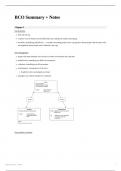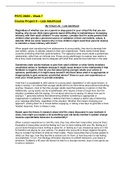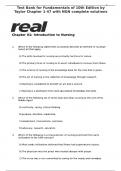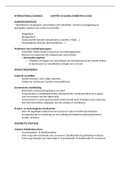Samenvatting
Summary + Notes Organizational Behavior, Global Edition - Behaviour and Communication in Organizations
- Instelling
- Vrije Universiteit Amsterdam (VU)
Complete summary of "Behavior and Communication in Organizations" from the textbook "Organizational Behavior" by Stephen P. Robbins and Timothy A. Judge, 19th Edition, Global Edition. This summary integrates lecture notes from every lecture, providing a thorough overview of key concepts (written i...
[Meer zien]














